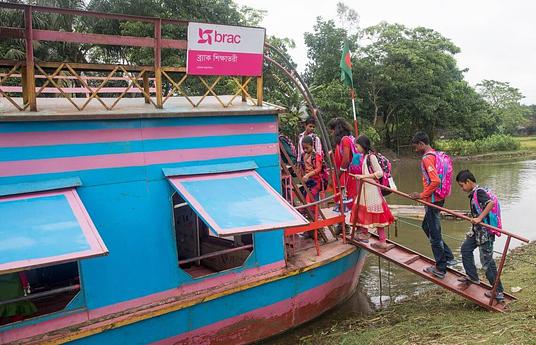Picture this - the school bell rings and, rather than clambering to be the first out the door, students run to the broom cupboard and start eagerly mopping the floors. No, you’re not dreaming - you’re just in a Japanese school during ‘o-soji’, or cleaning time.
For just 15 minutes in the school day, students use brooms, vacuums, and cloths to clean the classrooms and communal spaces around the school. The tradition is based on the philosophy that a clear mind comes from keeping clean and clear surroundings. Research does suggest that children in tidy classrooms tend to be happier than those in messy ones, so there are obvious benefits to keeping the classroom sparkling!
Busy teachers around the world might be suspicious - as nice as this sounds, isn't it a waste of valuable learning time? It might be, if you think school’s only function is to teach the curriculum, but o-soji provides ample opportunity to teach social skills and valuable life enhancing lessons - respect and gratitude for people and property, that actions have consequences and that part of being an independent, responsible person is doing the not-so-fun stuff. Plus, it can create a cohesive classroom culture where everyone, not just a frazzled teacher, unites to keep the environment a pleasant one to work in. This has potential to permeate other areas of school life, fostering a cooperative, respectful environment without having to explicitly push for it.
But is it as dull as it sounds? While obviously some tasks are more tedious, on the whole, kids seem to love o-soji! If you think about it, it’s surprising how much young children especially, like to play with cleaning tools - check out any large toy store and you’re bound to find a mini vacuum cleaner! There’s also the aspect of celebrating tradition and culture, as some schools choose to use traditional Japanese cleaning tools such as ‘zokin’, a woven textile cloth used to clean the floors.
While some might assume this is just a jazzed up cost cutting exercise, Japanese schools still employ professional cleaners and in some schools adults take the more heavy duty jobs, such as cleaning bathrooms and taking out the trash. Rather than being a grim and gruelling ordeal, o-soji is a social affair. The focus isn’t on the actual cleaning itself, as there are still janitorial staff to keep the place spotless.
O-soji is more a time for bonding, interaction, cooperation and shared purpose. Older students can help younger ones to master the tasks, allowing older students to act as mentors and younger learners to find responsible role models. The relaxed atmosphere is an opportunity for teachers to talk casually to pupils and get to know more about them, or to observe the dynamics between classmates. Meanwhile, students can have fun chatting and helping each other to get the job done. Some schools even blast music through the school announcement system!
How might your classroom culture change with a bit of o-soji? If you want to find out, head here for simple steps to implement this in your school!


